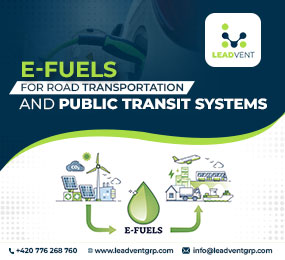The rising rate of pollution all around is mounting pressure on the transport sector to shed the burden of carbon and it is necessitating them to embrace the net-zero policy. This approach or commitment to sustainability in the present context is not at all an alternative, rather it has become mandatory to restore the planet to its previous state. Electrofuels here in this arena appear as a blessing that not only transforms the transport sector as a whole but also strengthens the method of value creation.
However, the arena of e-fuel is fraught with challenges and the policy and regulatory frameworks are intensifying the degree of complication. World E-fuels Summit, 2024 is a premier event of colossal importance that sheds light on policy initiatives, market dynamics and others to accelerate the adoption of e-fuel. Here in this blog, we are going to probe deep into the sphere of policy and regulatory frameworks to navigate the degree of complexities associated with them.
How do the Policy and Regulatory Frameworks are Enabling the E-fuel Revolution?
The radical transition in the fuel sector due to the emergence of e-fuel is enabling the transport sector to gain momentum as the industries and government have already started to recognise its potential. Let's explore through the below pointers how these frameworks are leaving an influence on the pragmatic implementation of e-fuel.
Regulatory standards
Having clear regulatory standards in place acts as the impetus to the e-fuel revolution and they take part in ensuring the quality and safety of this alternative form of fuel.
Blending requirements
Regulations in reality dictate how e-fuels can be blended with traditional fuels to create a sustainable future for the transport industry and how it contributes to the revenue mechanism of this sector.
Production specifications
There are specific regulations in place that are shaping the process of production and stressing upon the fact whether the safety protocols are properly met or not.
Lifecycle emissions assessment
The clear guidelines on life cycle assessment are proving beneficial as they enable us to compare the environmental impact of e-fuel with that of fossil fuel.
The Role of Supportive Policies E-fuel Revolution
Supportive policies
International policies and regulatory frameworks are not only there to hinder the course of the transport sector, but also in many contexts, they are offering support to pace up the process of widespread adoption of e-fuel all across the globe in the hard-to-abate sectors that can hardly be electrified.
Research and development grants
In Europe, the EU to fulfil its commitment to net-zero by 2050 is investing in R&D grants to encourage industry policy makers and leaders to create the breakthrough that is conducive to the e-fuel revolution.
Promotion of renewable energy
Some policies are designed to encourage the use of renewable energy sources to ascertain a reliable supply of green electricity for e-fuel synthesis.
Subsidies and tax incentives
As the scaling of e-fuel production is associated with a huge degree of challenges, subsidies and tax incentives are provided by the government for the sake of stimulating innovation in e-fuel technologies.
Case Studies
Germany’s E-Fuel Policy Framework
Germany's recent policy developments have enabled it to bag the leading position in the e-fuel sector. The German government brokered a deal with the EU that allows manufacturers to merchandise internal combustion models after 2035 if they run on carbon-neutral e-fuels. This policy change and paradigmatic shift have resulted in garnering support, grants and financial aid from the various companies and energy producers.
India’s Carbon Capture and E-Fuel Initiatives
As India has shifted its focus towards carbon neutrality, it is stressing e-fuel production to herald a sustainable tomorrow. Owing to this noble purpose, the Indian government is exploring partnerships for research and development in this arena, enunciating how national policies can drive innovation in clean technologies.
FAQs
1) How do e-fuels contribute to climate neutrality?
E-fuels are considered to be climate neutral as they emit an amount of CO2 that is equivalent to the amount of carbon captured during production.
2) How do policies support the development of e-fuels?
Governments take part in implementing supportive policies such as subsidies, tax incentives, and research grants to lower production costs.
3) What role does carbon pricing play in promoting e-fuels?
Carbon pricing mechanisms are encouraging industries to adopt cleaner alternatives like e-fuels and in this process making fossil fuel more expensive than ever.
Closing Thoughts
In a nutshell, robust policy and regulatory frameworks are the key to unlocking the full potential of e-fuel. When it comes to electrofuels or other alternatives, it is not at all feasible to coerce the researchers, rather sufficient governmental investment and grants are required to facilitate the process of e-fuel production without any complexity.












